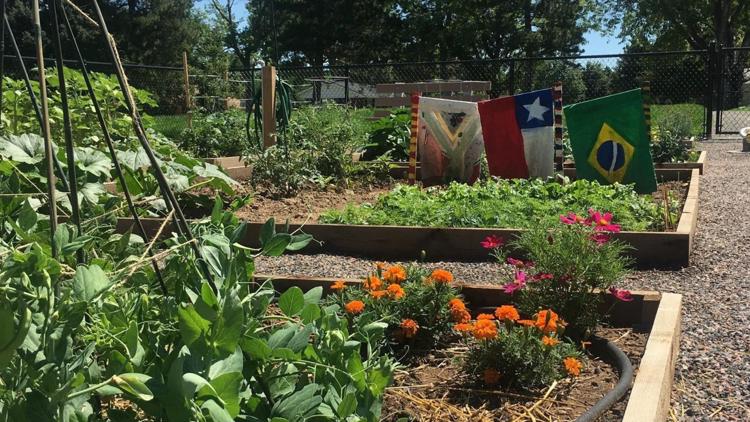EAST LANSING, Mich. — Michigan State University researchers find that community gardening can improve a person’s mental health.
The project, involving 34 participants with no previous community gardening experience, demonstrates there is a connection between the gardener’s social well-being and their thoughtful stewardship of the ecosystem.
The new gardeners participated in 19 community gardening events, hosted by Colorado-based non-profit Denver Urban Garden, between 2018 and 2019.
Over the year-long period, scientists interviewed the participants on a range of topics from their motivations to garden, to the state of their health before and while taking part in the project. Some participants reported relief from conditions including depression, anxiety and stress.
“Community gardening offers many positive things to participants such as encouraging healthier behaviors, improving mental and physical health, and increasing access to green spaces,” said Linda Appel Lipsius, executive director of Denver Urban Gardens. “Our study aimed to identify key aspects of gardening that are meaningful to people, help them stay involved in gardening, and contribute to their mental and social well-being.”
The study, led by nutritional epidemiologist and associate professor Katherine Alaimo, aimed to find proven pathways to healing through an immersive nature-based experience.
Researchers detailed how gardening with others can help build social networks and a “feeling of accomplishment.” Combined, those factors can positively impact the gardener and any noncommunicable diseases they may be dealing with.
According to the CDC, these noncommunicable diseases kill up to 41 million people per year and can include cancers, heart disease, diabetes and other chronic illnesses.
“We saw that many individuals found joy, purpose and meaning in their work, and their confidence and self-esteem was boosted, which helped them deal with mental health challenges such as depression, anxiety and stress,” said Eva Coringrato, an author on the study who was previously at Wayne State University during the research.
Recurring themes at the center of the experiment’s findings created what the team of researchers coined the “gardening triad.” The three primary outcomes included feelings of pride and self-efficacy as caretakers of the garden, a connection with nature and a sense of responsibility.
As a result, Alaimo believes that gardening and other nature-based health programs should be considered and further explored as viable pathways to health improvement.
However, should health systems move towards including more of those intervention methods, she says the prevalent need for more accessible greenspaces for underserved communities, still exists.
“One of the most important aspects of implementing these interventions and ensuring the equity of their impact is engaging diverse populations,” Alaimo said. “This includes low-income families and immigrant communities who may not have easy access to land and other resources. It’s also important to identify how their participation can be sustained over time.”
This study also comes on the heels of suicide prevention month, a nationwide observance recognizing the people and communities impacted by suicide. If you or someone you know is struggling with a mental crisis, help is available by dialing 9-8-8 to reach the Michigan Suicide and crisis lifeline or by visiting the suicide prevention resource center.



